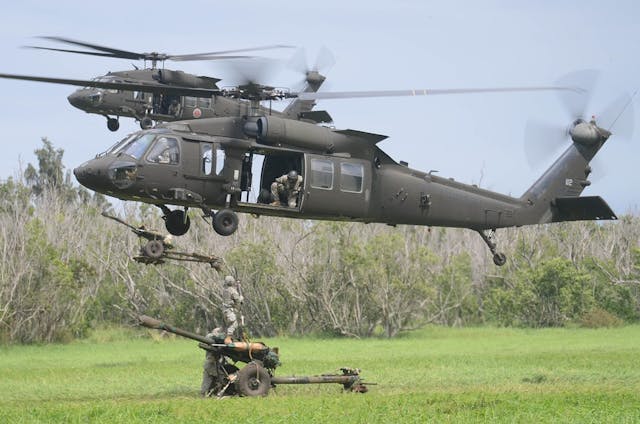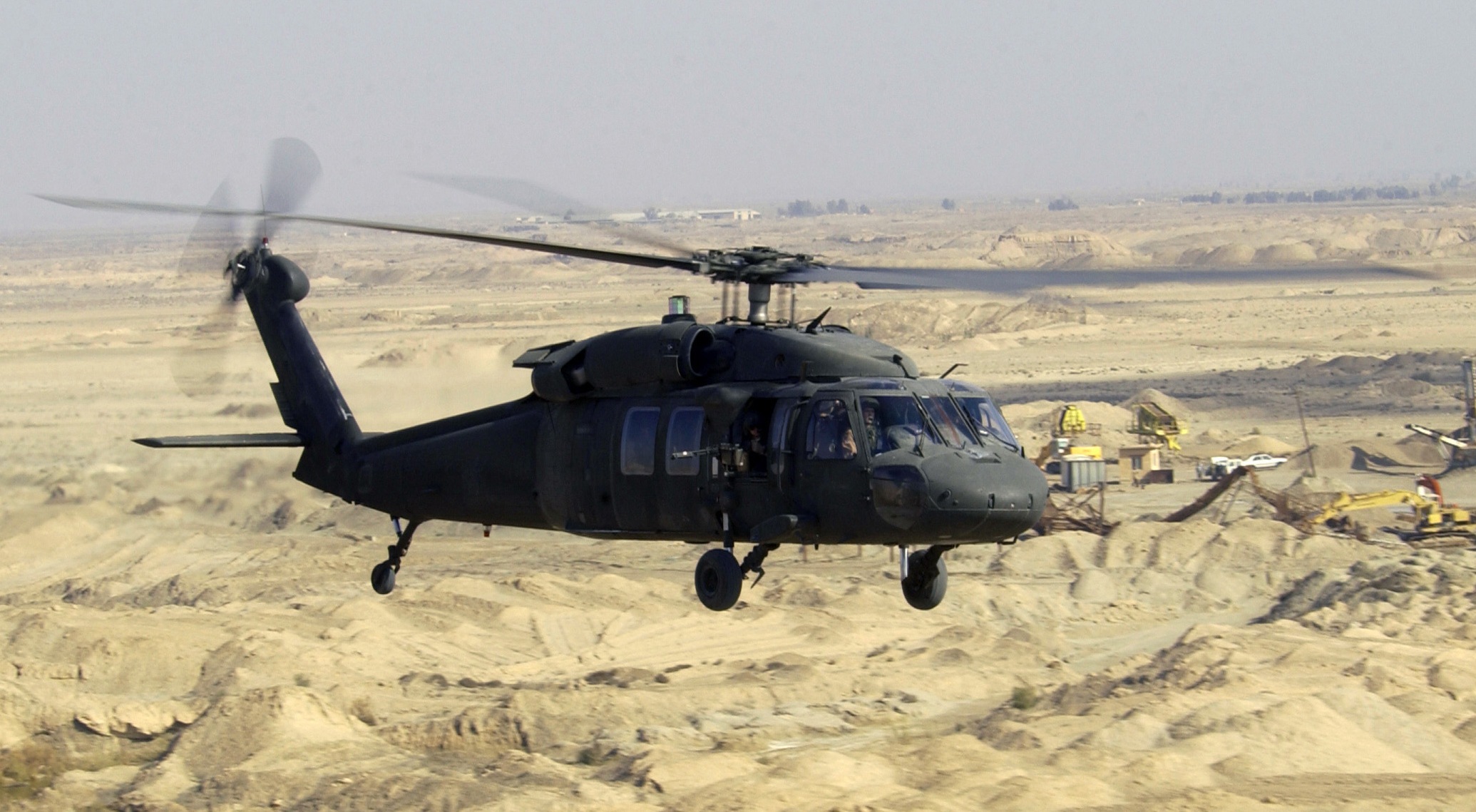UH 60 Black Hawk Helicopter Versions and Their Usages
UH 60 Black Hawk Helicopter Versions and Their Usages
Blog Article
The Effect of Lasting Practices on the Future of Aircraft Workflow and Emissions Reduction
As the aviation market deals with raising analysis over its ecological effect, the fostering of lasting techniques arises as an important path toward future airplane operations and emissions reduction. Developments in sustainable aviation fuels and improvements in crossbreed propulsion technologies stand at the center of this change, appealing significant decreases in greenhouse gas discharges. The effective integration of these efforts pivots on a range of aspects, consisting of governing structures and sector cooperation. The inquiry stays: exactly how will these advancing methods reshape the characteristics of air traveling and add to a more sustainable future?

Overview of Lasting Practices
Lasting practices in aircraft operations encompass a variety of strategies focused on lowering environmental effect while preserving functional performance. These methods are important in the aeronautics market's commitment to reducing its carbon impact and adhering to global environmental requirements. Secret initiatives consist of enhancing trip courses to lower gas usage, boosting upkeep procedures to guarantee aircraft operate at peak effectiveness, and implementing sophisticated modern technologies such as winglets and light-weight materials that enhance the rules of aerodynamics.

Engaging and educating team on sustainability techniques additionally play a crucial function, promoting a society of environmental duty within organizations. On the whole, the assimilation of these sustainable practices not only helps in reducing discharges but additionally improves the lasting practicality of the aviation field, ensuring it fulfills the needs of both clients and regulative bodies while adding to worldwide sustainability objectives.
Innovative Fuel Alternatives
Various innovative gas alternatives are becoming essential solutions to reduce the air travel sector's reliance on standard nonrenewable fuel sources. Among these choices, Lasting Air travel Fuels (SAFs) have actually acquired substantial focus because of their prospective to lower lifecycle greenhouse gas discharges by up to 80% contrasted to standard jet fuels. SAFs are obtained from various feedstocks, including waste oils, farming residues, and even algae, making them a versatile alternative for the market.
An additional promising choice is hydrogen gas, which, when made use of in fuel cells, creates just water vapor as a byproduct. This zero-emission possible presents a considerable opportunity for decarbonizing flight procedures, specifically for short-haul flights and local aircraft. Furthermore, electric propulsion systems are being discovered, leveraging battery modern technology to power aircraft. While current battery capacity restrictions variety and haul, recurring improvements may soon make electrical flights feasible for particular applications - uh 60.
Finally, biofuels derived from biomass are being explored, using an eco-friendly choice that can be mixed with typical gas. Jointly, these ingenious fuel choices represent a critical step toward achieving a lasting air travel ecological community, aligning with global discharges decrease targets and boosting the sector's ecological stewardship.
Technical Improvements in Air Travel

How can technical developments improve the future address of aeronautics? Advancements such as hybrid and electric propulsion systems are at the forefront, promising significant decreases in gas usage and greenhouse gas discharges.
Furthermore, the execution of innovative products, such as lightweight compounds, adds to enhanced the rules of aerodynamics and gas efficiency. Using synthetic knowledge and equipment knowing in trip operations enhances path planning and minimizes fuel burn by making it possible for real-time changes based upon weather and website traffic problems. Furthermore, the development of autonomous and remotely piloted aircraft systems stands to revolutionize cargo and passenger transport, potentially enhancing efficiency while reducing human mistake.
Furthermore, sustainable air travel innovations, including sophisticated air traffic monitoring systems, can improve procedures and lower blockage, resulting in reduced emissions throughout flight. These advancements collectively represent a paradigm shift in air travel, guaranteeing a future where sustainability and operational click to read more effectiveness are linked, thus sustaining the industry's dedication to minimizing its environmental effect.

Regulative Framework and Conformity
In light of the expanding emphasis on ecological stewardship within the aeronautics market, the governing framework regulating airplane operations is developing to advertise sustainable techniques. Regulatory bodies, such as the International Civil Aeronautics Organization (ICAO) and various national air travel authorities, are introducing rigorous guidelines focused on minimizing discharges and enhancing operational effectiveness.
These regulations typically consist of the fostering of Sustainable Air travel Fuel (SAF), which has actually been acknowledged as a vital element in attaining lower carbon impacts. Additionally, conformity with these guidelines calls for airlines to apply operational practices and advanced innovations, such as enhanced trip courses and boosted air traffic monitoring, to minimize gas usage.
Furthermore, the enforcement of exhausts trading schemes and carbon balancing out efforts is ending up being progressively widespread, compelling airlines to monitor and report their exhausts precisely. Non-compliance can lead to considerable charges, hence pressing operators to prioritize sustainability in their business versions.
Inevitably, the advancing regulatory landscape not only drives advancement and financial investment in environment-friendly modern technologies however also cultivates a society of accountability within the aviation industry. As these frameworks proceed to develop, the emphasis on sustainable methods will be important to attaining the sector's long-lasting environmental goals.
Future Trends in Airplane Procedures
As the aeronautics industry adapts to a significantly strict governing atmosphere, future fads in airplane operations are established to concentrate on cutting-edge services that better boost sustainability and effectiveness - uh 60. Trick growths will likely consist of the adoption of sophisticated air traffic administration systems, which utilize real-time information and expert system to maximize flight paths, advice decreasing fuel usage and emissions
One more considerable pattern is the boosted assimilation of lasting aviation fuels (SAFs) These options to traditional jet gas, originated from sustainable sources, can considerably lower lifecycle greenhouse gas discharges. The market's dedication to SAFs will likely accelerate as airlines work together with gas manufacturers to make certain schedule and cost-effectiveness.
Additionally, the push in the direction of electrification and hybrid propulsion systems is getting momentum. Arising airplane styles will integrate these modern technologies, offering quieter and more efficient procedures, particularly for short-haul trips.
Conclusion
In verdict, the combination of sustainable methods in airplane operations holds significant possibility for exhausts reduction and improved performance. The fostering of lasting aviation fuels, coupled with improvements in hybrid and electric propulsion systems, is important for decreasing lifecycle greenhouse gas discharges. Additionally, enhancing flight paths and welcoming cutting-edge modern technologies add to a quieter and extra environmentally pleasant aviation field. Jointly, these efforts straighten with worldwide sustainability objectives and lead the way for a greener future in air travel.
Technologies in lasting aeronautics fuels and advancements in hybrid propulsion technologies stand at the center of this change, appealing substantial decreases in greenhouse gas emissions.Countless ingenious gas alternatives are arising as essential services to lower the air travel sector's dependence on conventional fossil gas - uh 60. Amongst these alternatives, Sustainable Aeronautics Gas (SAFs) have actually obtained substantial interest due to their potential to decrease lifecycle greenhouse gas exhausts by up to 80% contrasted to traditional jet fuels.Another substantial fad is the raised combination of lasting air travel fuels (SAFs) The adoption of sustainable aviation fuels, combined with improvements in hybrid and electrical propulsion systems, is necessary for minimizing lifecycle greenhouse gas emissions
Report this page